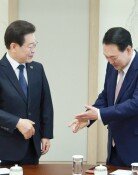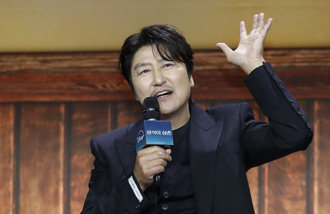Lawmaker`s expulsion and justice
Law and court rulings should comply with justice. In the U.S., the word "justice" also refers to a member of the Supreme Court. In Germany, law is called recht, which also means justice. So the question is if society must follow law and rulings that fail to comply with justice. Emergency measures taken under the Yushin (New Reform) Constitution of the 1970s under then President Park Chung-hee, which back then had the same effect as law and rulings, have since been ruled unconstitutional. Rulings issued by the Supreme Court based on these measures have ultimately been reversed. In other words, this is an era in which the notions of A bad law is also law and A bad final trial is also a final trial cannot be denied.
Roh Hoi-chan of the minor opposition Progressive Justice Party lost his parliamentary seat Thursday after being found guilty by the Supreme Court for violating the Communication Privacy Protection Act. By citing voice records of eavesdropping created eight years ago by the Agency for National Security Planning (now the National Intelligence Service), he posted online a list of eight former and incumbent senior prosecutors who received financial gifts from Samsung Group. Investigators do not consider eavesdropping records as accurate even if they comply with facts, barring no other evidence. As a result, the probe into the prosecutors who allegedly took the gifts was improperly conducted and they were never indicted. On the contrary, journalists including MBC TV reporter Lee Sang-ho, who was fired Friday, Kim Yeon-gwang, former editor-in-chief of the Monthly Chosun magazine and now chief of staff of the National Assembly speaker, and Roh were indicted and sentenced.
Roh said he should be exempted from punishment because he claimed his disclosure was meant for public good. Many people also support him because as a liberal politician, he has been critical of pro-North Korea forces and conducted political activities in line with common sense. If eavesdropping is accepted for the sake of public interest, chances are high that reporters will be tempted to gather news through wiretapping, creating an uphill battle for the government and companies to fight eavesdropping. If someone unilaterally spreads a false statement against the other, the latter could suffer damage. For this reason, the communication privacy law bans eavesdropping and information gathered through wiretapping. The Supreme Court is also cautious in rejecting any exception to this unless it constitutes a matter of grave public interest.
With Rohs expulsion from parliament, stakes are high for the April by-elections. Lee Jae-gyun of the ruling Saenuri Party also lost his seat in Busan`s Yeongdo district Thursday because the Supreme Court upheld a fine of 1 million won against the chief of his election campaign office. Also awaiting verdicts on if they will be forced out of the National Assembly due to offenses are Rep. Kim Geun-tae (Cheongyang-Buyeo in South Chungcheong Province) and Rep. Shim Hak-bong (Gumi district in North Chungcheong Province) of Saenuri, and independent lawmaker Kim Hyeong-tae (Pohang-Ulleung in North Gyeongsang). Speculation is rising that former liberal presidential candidate Ahn Cheol-soo could run in the by-elections. Former Saenuri floor leader Kim Moo-sung has declared his candidacy for Busans Yeongdo district. The upcoming by-elections will likely entail showdowns because Seoul`s Nowon district, where Roh lost the seat, will see the first election race in the capital region following the inauguration of the Park Geun-hye administration.
Editorial Writer Song Pyeong-in (pisong@donga.com)







